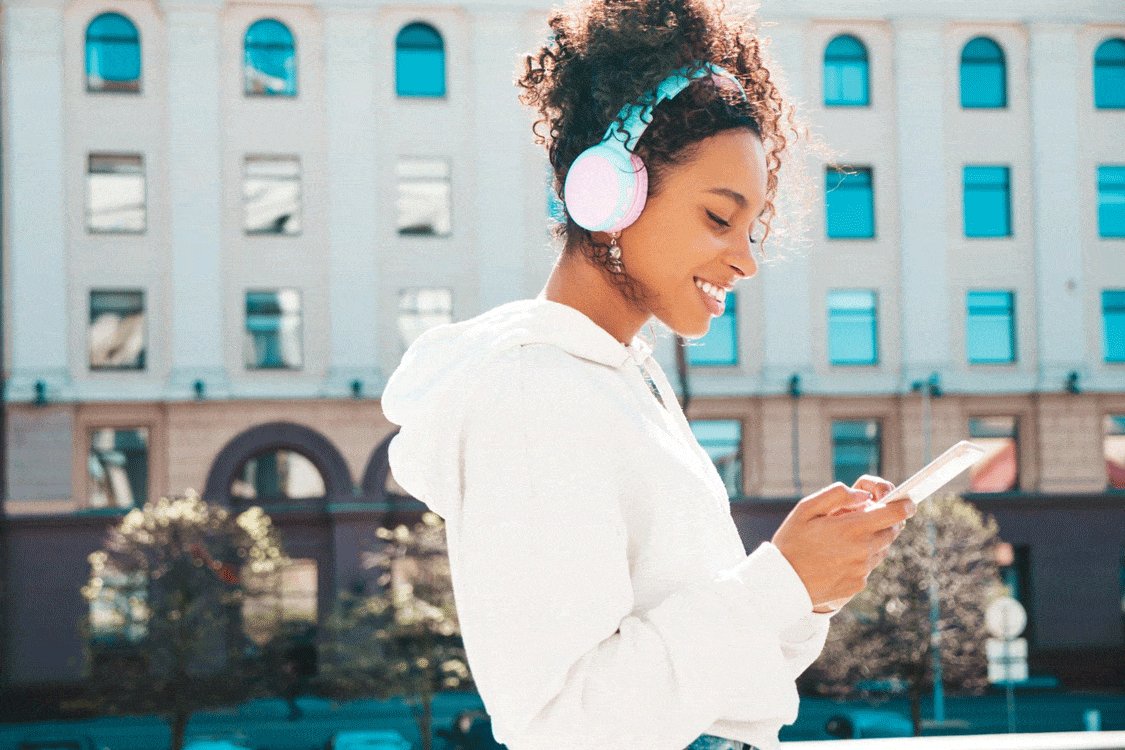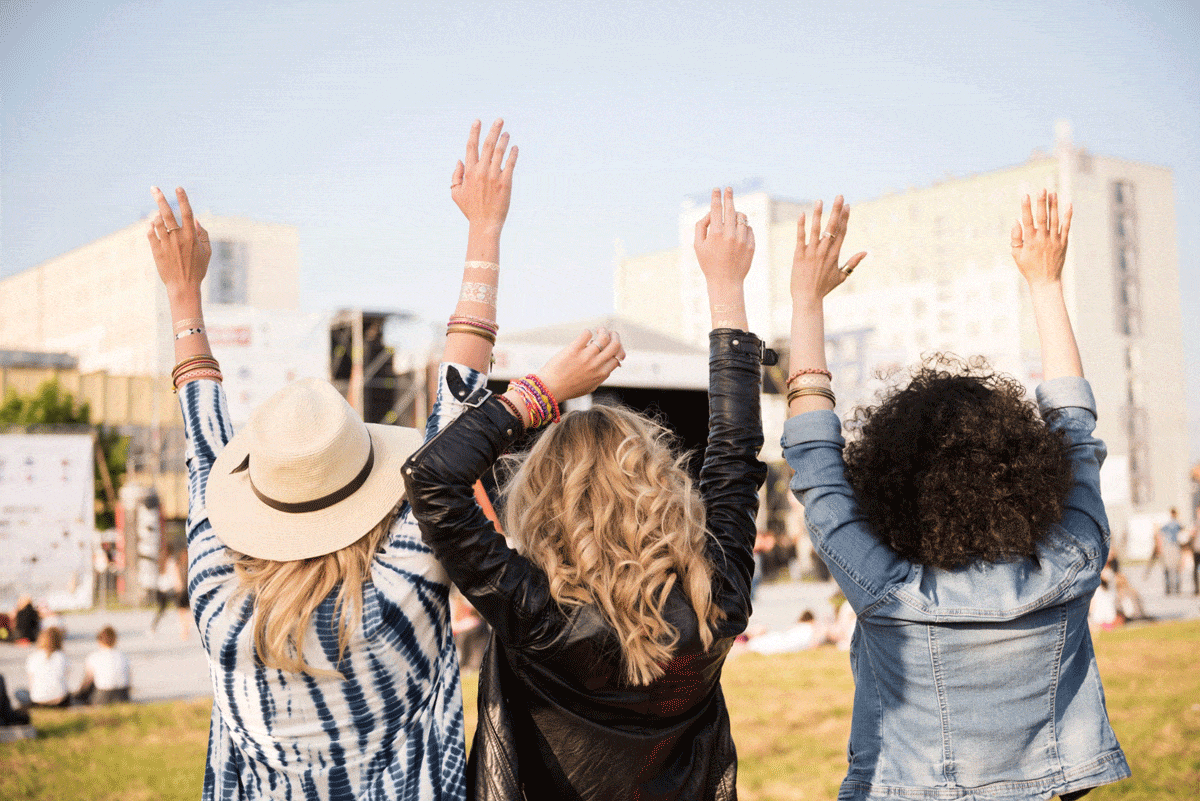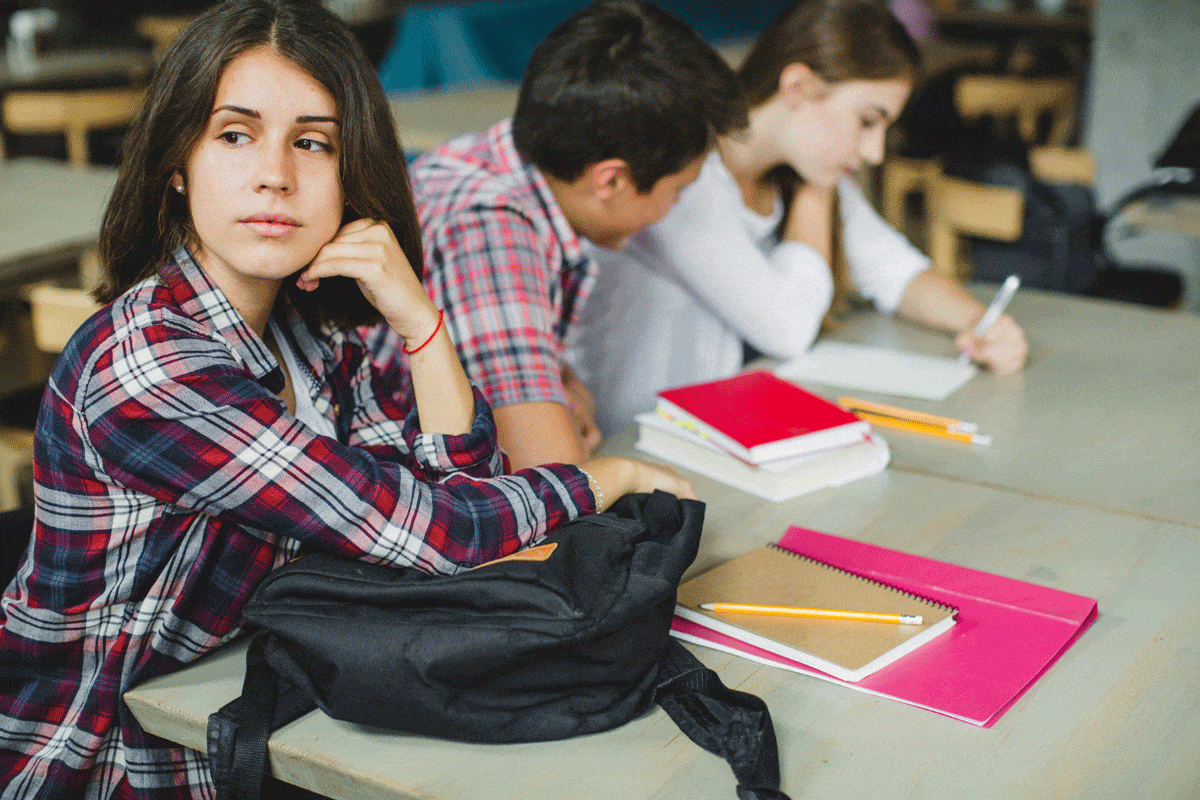
A new study suggests that more than 1 billion teenagers worldwide could be at risk for hearing loss.
As a teenager, you are vibrant, full of life, and invincible. However, the misconception that hearing loss only happens to those in their 60s and above is incorrect. Using personal music devices, concerts, and other loud sounds. According to the CDC, around 13% of children and teenagers aged six to 19 have permanent hearing damage. Additionally, another 17% of people over the age of 20 have also experienced damage due to excessive exposure to noise.
Lauren Dillard, Ph.D., an audiology doctor at the Medical University of South Carolina in Charleston, warns that personal listening devices like smartphones and loud entertainment venues such as bars, concerts, and nightclubs present significant dangers to young people due to their unsafe listening practices.
To investigate this issue further, scientists analyzed data from over 19,000 people aged 12 to 34 who participated in 33 previous studies. The results, published in BMJ Global Health on November 15, revealed that an alarming one in four people set their headphone volume at dangerously high levels, while almost half attended concerts with unsafe noise levels.
The study team strongly recommends that individuals aim for 85 decibels or less exposure for an eight-hour workday to minimize the risk of hearing loss. However, the young people in the study were exposed to average noise levels of 105 decibels with headphones and 104 to 112 decibels at entertainment venues, which is an unacceptable level of danger.
Concerts and live events?

As a parent, you have likely experienced temporary hearing damage due to loud noise exposure. Symptoms such as ringing in your ears after a concert or sporting event. Loud parties can also be a culprit for hearing damage. To help protect your child’s hearing in noisy environments, consider providing them with earplugs.
Keeping a safe distance from speakers or other noisy sources can also help reduce noise. If you or your child experiences ringing in the ears or ear pain due to noise exposure, it’s important to take a break and leave early to prevent further damage.
Hearing loss due to loud sounds is permanent but preventable
Prolonged or repeated exposure to loud sounds causes permanent hearing damage, leading to irreversible hearing loss or tinnitus. To better protect their hearing, young people can take the following steps:
- Maintaining lower volume on personal audio devices
- Wearing well-fitted and (if possible) noise-canceling earphones/headphones
- Wear earplugs at loud venues
- Getting routine hearing check-ups
Impact of hearing loss
It is important to note that hearing loss in children results in decreased academic performance, lack of concentration, and reduced motivation.
Moreover, hearing loss is linked to cognitive impairment, lower education and income, depression, and even heart problems in adults, according to the Centers for Disease Control and Prevention.

Ways to prevent hearing loss
Noise exposure through electronics is often an adjustable factor for hearing loss. A few steps you can take or talk to your child about include:
Normalizing hearing tests
Most parents are likely aware of the hearing screenings that are typically done shortly after birth. These formal screenings are usually conducted in the hospital before the baby being discharged. This is because detecting hearing loss early on is crucial. If hearing issues are present from birth, they can result in developmental delays, such as difficulties with language comprehension and speech production.
It’s important to note that hearing loss can also be acquired later on, beyond the newborn period. To address this, the American Academy of Pediatrics recommends regular hearing screenings at these ages:
- Ages 4, 5, 6, 8, 10
- 11-14 years of age
- 15-17 years of age
- 18-21 years of age
If children have any risk factors that may increase their chances of experiencing hearing issues, additional screenings may be suggested if:
Hearing screenings are straightforward; the patient puts on headphones and listens to a series of beeps at different pitches. If you have concerns about your child’s hearing, ask your child’s doctor to screen them, even if it is outside the usual screening age.
Salem Audiology Clinic can help you determine if your hearing has been compromised. Early detection and planning is the best way to avoid many problems associated with hearing loss. Because it’s not something you can see, it often goes undetected before larger issues occur. Get your hearing checked by one of our highly trained professional Doctors of Audiology.
Call us today at (971) 701-6322
